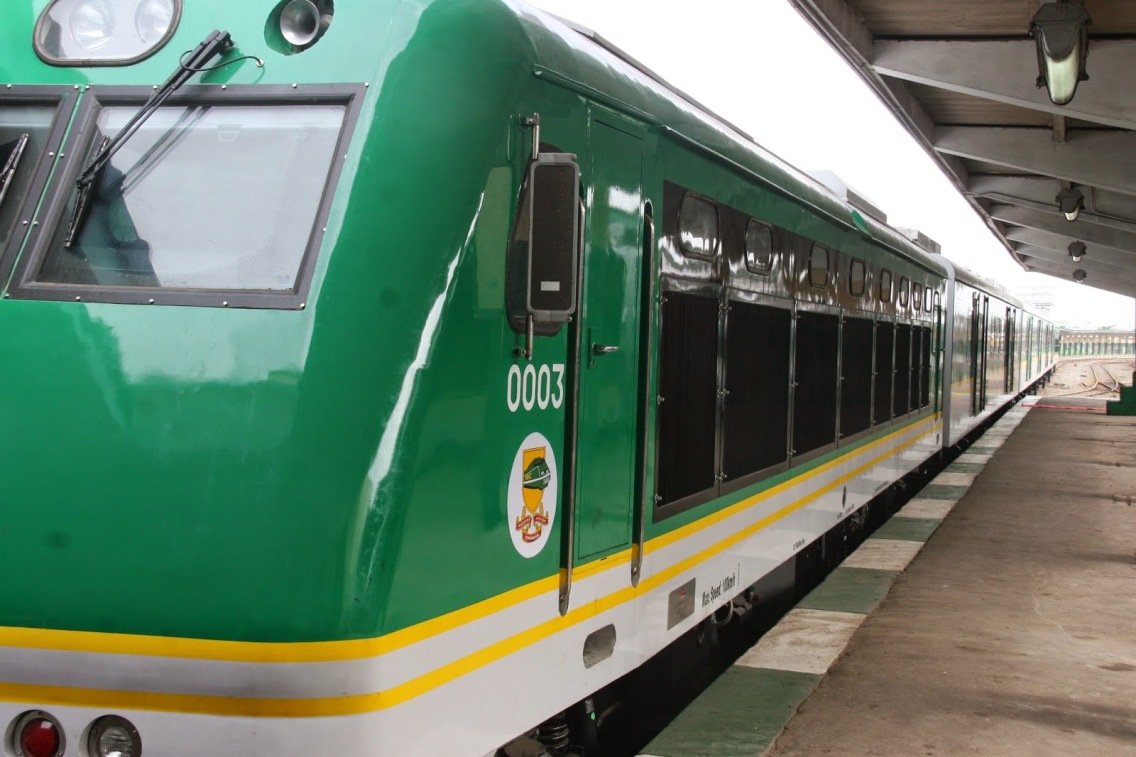- Nigeria Borrows $3.1bn for Railway, Airports Projects
Nigeria, under the administrations President Muhammadu Buhari and that of former President Goodluck Jonathan, has borrowed about $3.1bn for railway and airport projects across the country.
It was learnt that $1.6bn was borrowed by the current government for the construction of a standard gauge Lagos-Ibadan rail line, while the previous government reportedly collected $500m and $800m loans for airport upgrade and Abuja-Kaduna new rail line, respectively.
In 2013, the Federal Government secured the $500m loan from China for the construction of four international airport terminals in Abuja, Kano, Lagos and Port Harcourt, after signing a Memorandum of Understanding with China Exim Bank. The MoU for the loan was signed in Beijing, China, and it was for the delivery of the four new International airport terminals to Nigerians and to be constructed by the China Civil Engineering Construction Corporation.
The Minister of Transportation, Rotimi Amaechi, while also confirming the loans, said a total of $1bn loan was taken to complete the Abuja-Kaduna standard gauge rail line whose operation was recently inaugurated by President Buhari.
The minister also said that the Federal Government was working out plans for the commencement of the proposed new Ibadan-Kaduna rail line.
Amaechi, who confirmed this in a recent interview with journalists, specifically stated that the Ibadan-Kaduna railway project would be constructed by the CCECC, adding that the contract had been signed.
The minister said, “We borrowed $1.6bn for the Lagos-Ibadan railway project. But if you add the ones we met in my ministry, I think they borrowed $500m for aviation, which is for the four international airports in Abuja, Lagos, Port Harcourt and Kano.
“They also borrowed $500m to do the Kaduna-Abuja rail and the total figure then was about $800m and the total work brought it to about $1bn.”
Amaechi, however, stated that the Federal Government was funding the re-construction of the Itakpe-Ajaokuta-Warri rail project and that the cost to the government was in excess of $100m.
“We are funding this (Itakpe-Ajaokuta-Warri) project and we funded the completion of the Abuja-Kaduna rail. So, you can see that the government is frugal,” Amaechi said.
On the proposed contract with the CCECC for the construction of the Ibadan-Kaduna rail, the minister stated that the government was pushing hard to secure about $6.7bn loan for the facility.
He said, “We’ve signed the contract but we’ve not got the loan. What is important is the loan, which is a bit difficult but we are pushing hard. If we get the loan, then they (CCECC) will start this year because we are pushing hard. Honestly, it is one of the items I’m putting before the President for consideration.
“The loan is supposed to be about $6.7bn. But when we met with the China Exim Bank, they wanted us to reduce it. However, we will put it before the President so that he too can make a case for it when he goes to China.”
When asked whether the ministry was not overwhelmed by the many multi-billion dollar rail and aviation projects being handled simultaneously across the country, Amaechi said, “How can it (ministry) be overwhelmed? Are we not completing the projects? For the Lagos-Ibadan project, that should be completed latest by December or maybe in January. I thought you should be praising the ministry because we are able to multi-task.
“We met the Itakpe-Ajaokuta-Warri rail line abandoned and we are completing it. Our initial target is that they (contractors) must leave site in June and now we’ve agreed and Julius Berger is leaving site in August.
“The CCECC is where we have some problems; they are trying to say that the contract is till 2019, but we are insisting that they must complete it much earlier. You can imagine the level of commercial activities that will take place when this is completed, the jobs it will create and how it will reduce the pressure on our roads.”

 Forex3 weeks ago
Forex3 weeks ago


 Naira2 weeks ago
Naira2 weeks ago
 Billionaire Watch2 weeks ago
Billionaire Watch2 weeks ago




 Naira2 weeks ago
Naira2 weeks ago




 Naira2 weeks ago
Naira2 weeks ago




 Naira1 week ago
Naira1 week ago




 Naira4 weeks ago
Naira4 weeks ago




 Naira3 weeks ago
Naira3 weeks ago






















